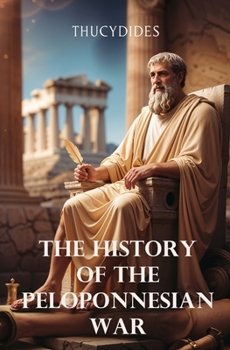History of the Peloponnesian War
Select Format
Select Condition 
Book Overview
A gripping account of one of the most consequential conflicts in ancient Greece, History of the Peloponnesian War offers an unparalleled chronicle of the long and devastating struggle between Athens and Sparta. Written by Thucydides, an Athenian general and eyewitness to the war, this work is celebrated for its meticulous analysis of events, political dynamics, and the nature of power.
Unlike earlier historical writings, Thucydides presents a rigorous, evidence-based approach, setting a precedent for historical scholarship. His exploration of war, diplomacy, and human ambition continues to influence political thought and military strategy.
A cornerstone of classical literature, this timeless work remains essential for understanding the complexities of warfare and the fragile balance of power in human affairs.






